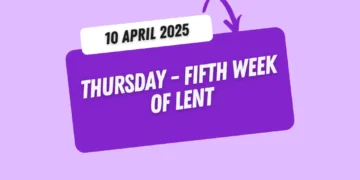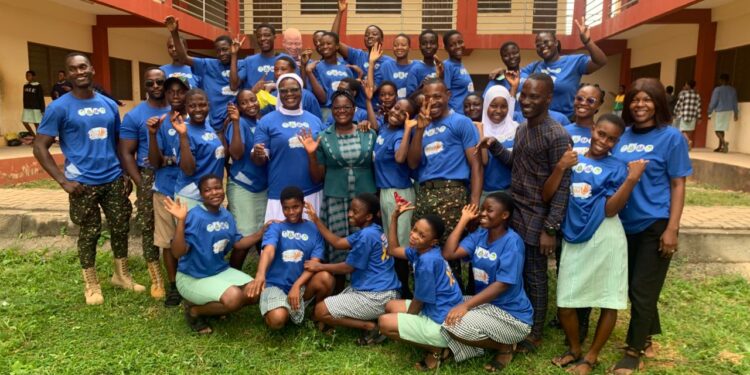‘Amewuga Campaign fights Human Trafficking, Child Marriage, and Domestic Servitude at the Aflao Border.
As the world marks the month of July Against Trafficking in Persons, the Ghana Immigration Service (GIS), in collaboration with the Handmaids of the Divine Redeemer (HDR) Sisters’ Foundation, the International Centre for Safe Migration (ICSM), and other faith-based partners, have launched an advocacy campaign to fight human trafficking, child marriage, and domestic servitude in Aflao and its surrounding border communities.
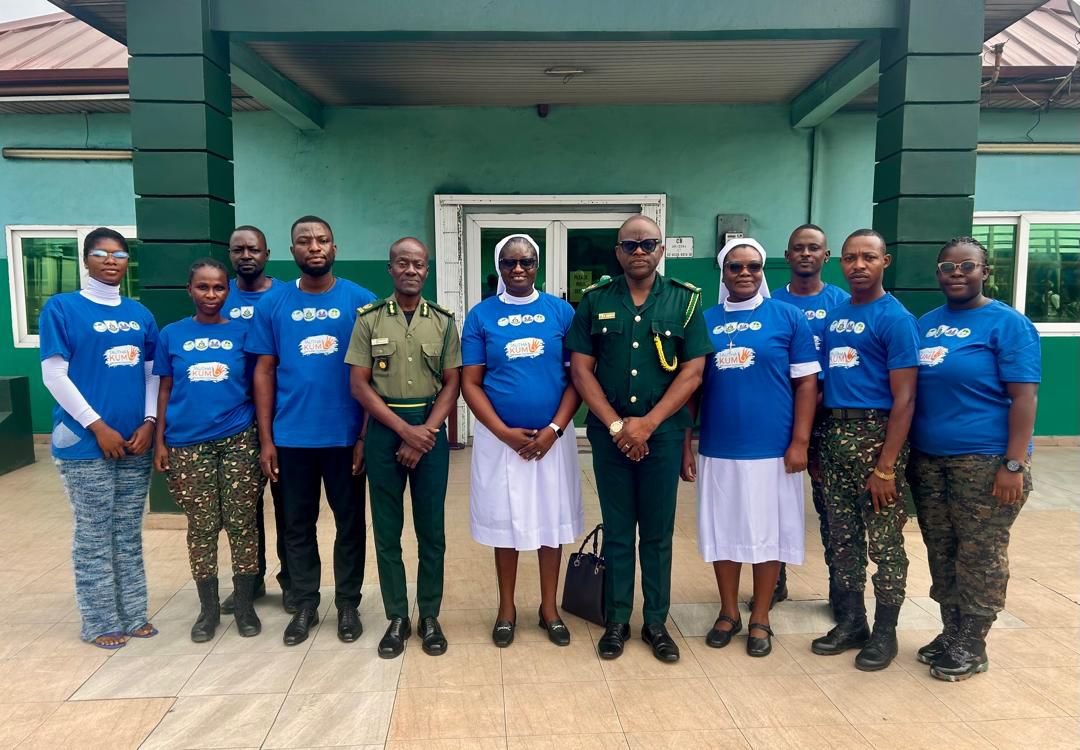
Human trafficking takes place in every region of the world: Human beings are sold, bought and traded much like objects. Victims of trafficking end up in the hands of traffickers because they are being deceived, forced or abducted.
Human trafficking is involuntary and victims are exploited, whereas smuggling is voluntary, yet still bears life-threatening risks. A smuggling case can become human trafficking if the victims are exploited, for example, by being held for ransom, or to pay off a smuggling debt through forced labour or sex work.
This is why refugees and other forcibly displaced people are at risk of being trafficked and smuggled.
The “Amewuga Advocacy Campaign” means “Human life is more valuable than money” in Ewe.
Those involved in working with people of concern must be aware of the trafficking phenomenon, raise awareness among colleagues on the ground, and understand the vulnerabilities that can put people at risk of becoming victims of trafficking.
Team Amewuga from the Immigration Service of Anti-Human Smuggling and Trafficking in Persons (AHSTIP) and the Sisters of Handmaids of the Divine Redeemer Sisters’ Foundation took up a three-day initiative drive with a series of education, outreach, and media engagements designed to highlight the growing threats of human trafficking and to build community resilience.
On Tuesday, July 15, 2025, Sr. Regina Ignatia Aflah, HDR and Sr. Lucy Sasu, together with DSI Justice Normeshie, who leads the Anti-Human Smuggling and Trafficking in Persons (AHSTIP) Unit at the GIS Aflao Sector Command, with his team, led a live Ewe-language panel discussion on EWE24 TV at Akatsi.
The discussion sensitised viewers on the dangers of human trafficking, child marriage, and domestic servitude, using a culturally relatable format to make the message resonate deeply.
On Wednesday, July 16, 2025, the team visited Aflao Secondary Technical School, where over 700 students (360 males and 340 females) participated in a session filled with drama, poetry, and public education. Real-life stories were dramatised to show how traffickers lure victims under the guise of jobs and travel.
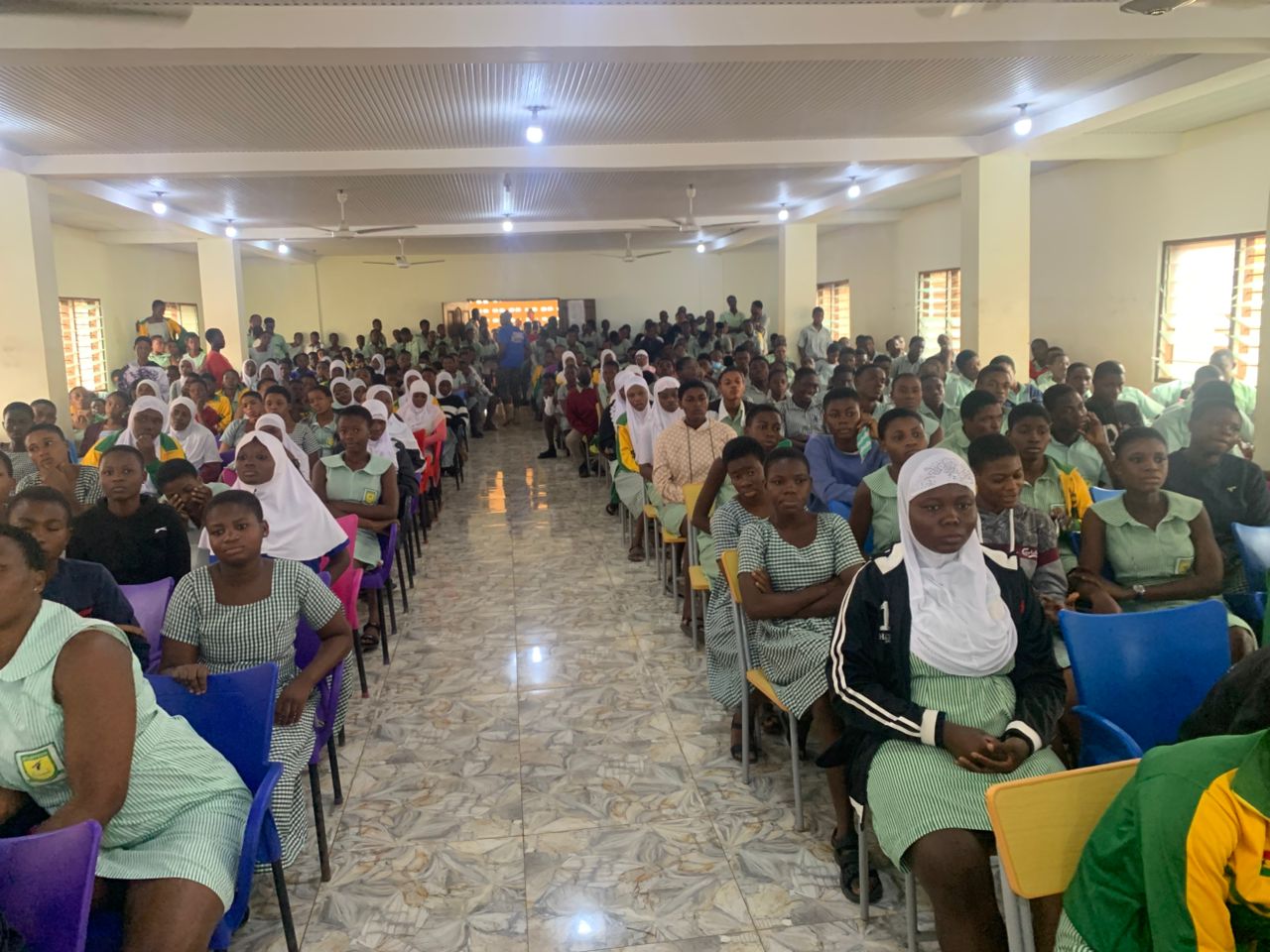
In an address, Deputy Superintendent of Immigration (DSI) Justice Kodjo Normeshie warned students not to be deceived by false promises of better lives abroad.
“Some people will come with sweet talk and fake opportunities that do not exist. Human trafficking is real. And your life matters,” Amewuga — human life is more precious than money.
Sr. Regina Ignatia Aflah, Assistant Superior General of the Handmaid of the Divine Redeemer Congregation and the Executive Director of the Handmaids of the Divine Redeemer Sisters’ Foundation (HDRSF), added her voice and told the students not to trade their future for money.
She did not hold back as she painted a grim picture of what awaits victims whom traffickers lure.
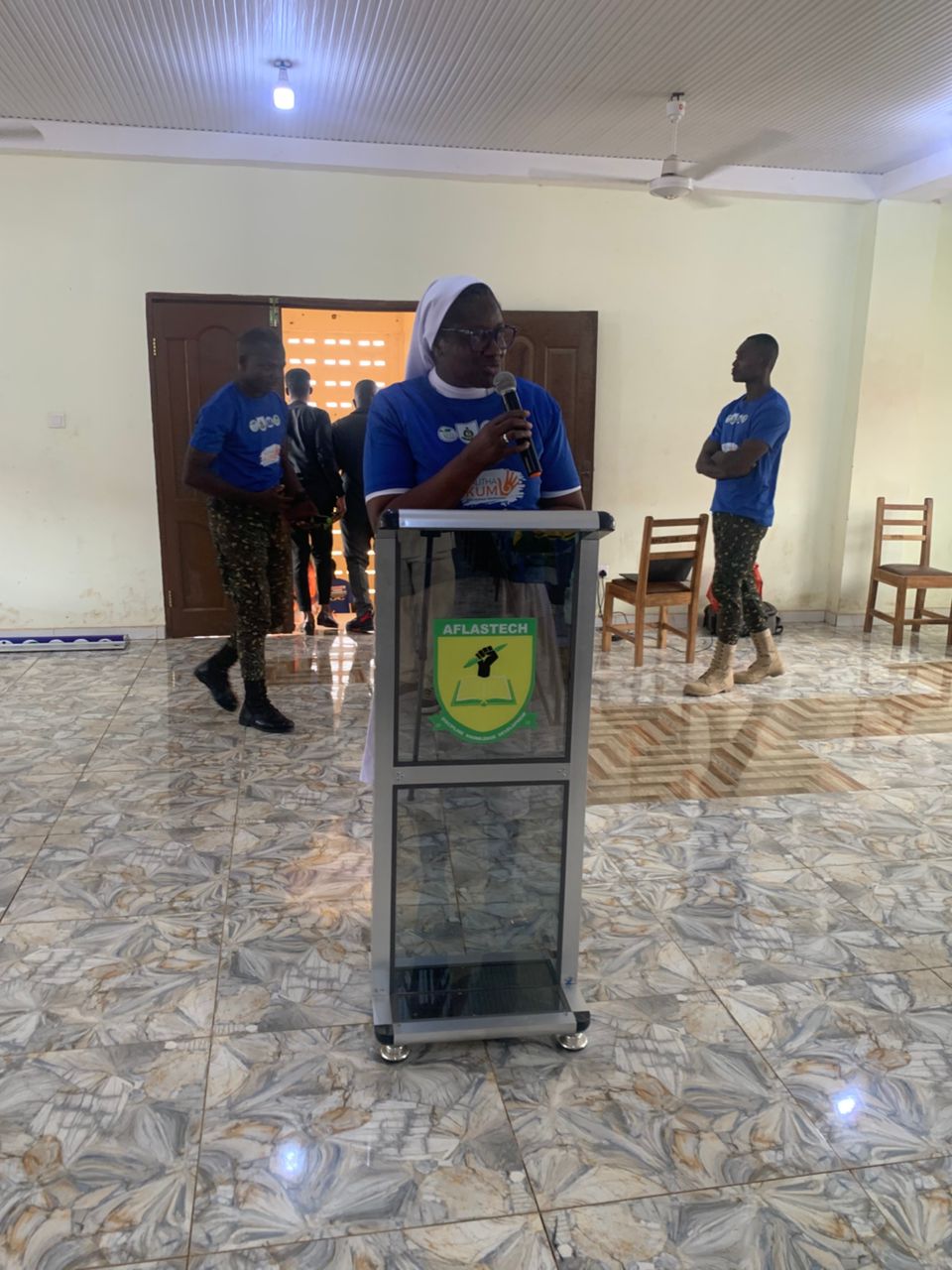
“Some girls are forced into child marriage. Others are turned into domestic enslaved people or trafficked for sex. If they refuse, they are threatened with death, or worse,” she stated, advising that: “You must value your life and identity. Whether you’re from Ghana, Nigeria, or elsewhere, know that where you were born is a gift from God. Don’t chase money and end up losing your life”.
Sr. Aflah urged the students to carry the message beyond the school. DSI Normeshie concluded that team Amewuga remained committed to continuing this work — because every life matters, and no one deserves to be sold, abused, or exploited.”
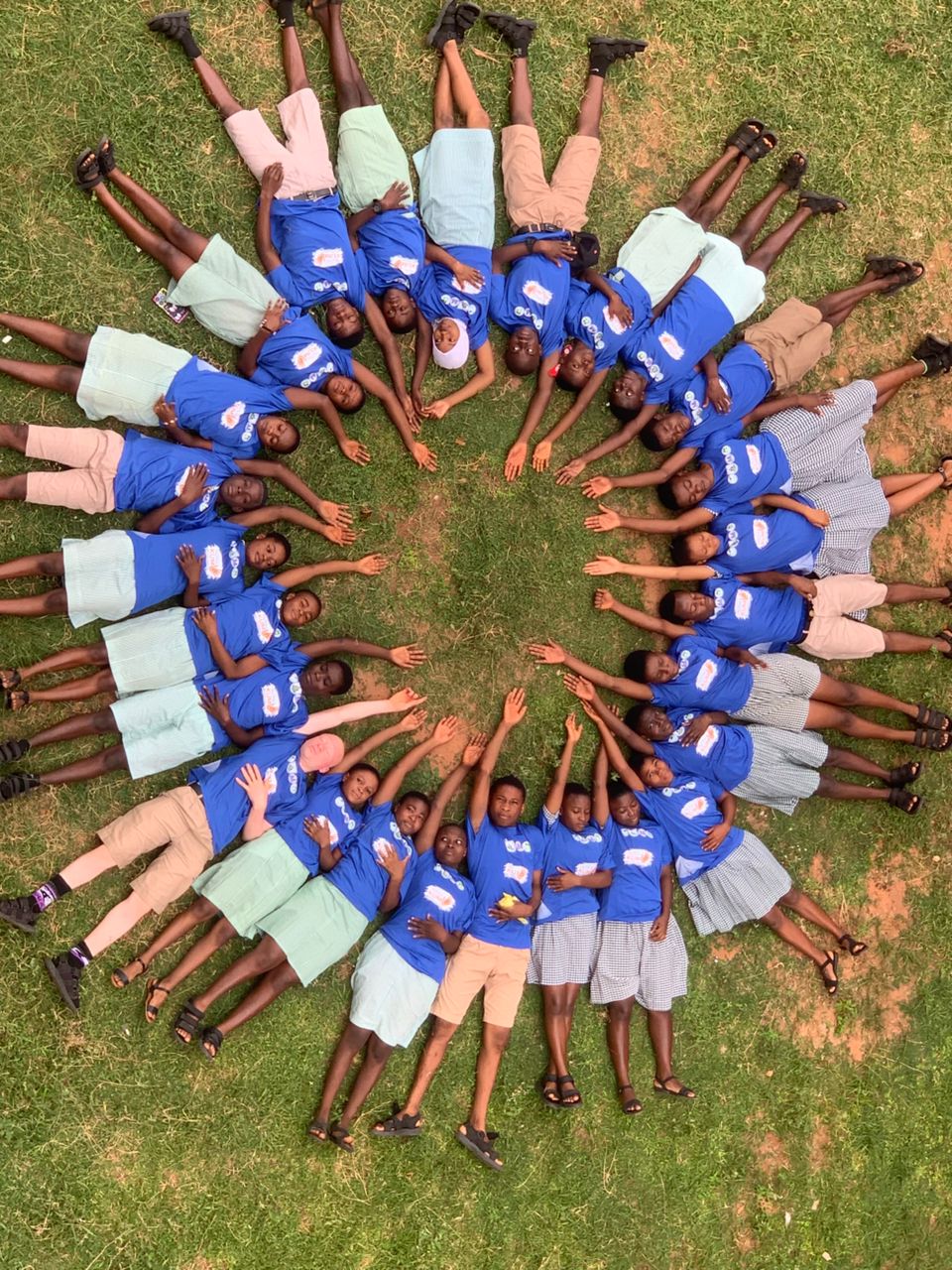
Later that day, campaign flyers were distributed at the Aflao main border, directly engaging travellers and border workers.
On Thursday, July 17, 2025, the campaign ended with a live discussion at Aflao radio Amenuveve.
The interactive session allowed listeners to ask questions, share concerns, and learn practical ways to avoid becoming victims of trafficking.
By Sr. Lucy Sasu, HDR




